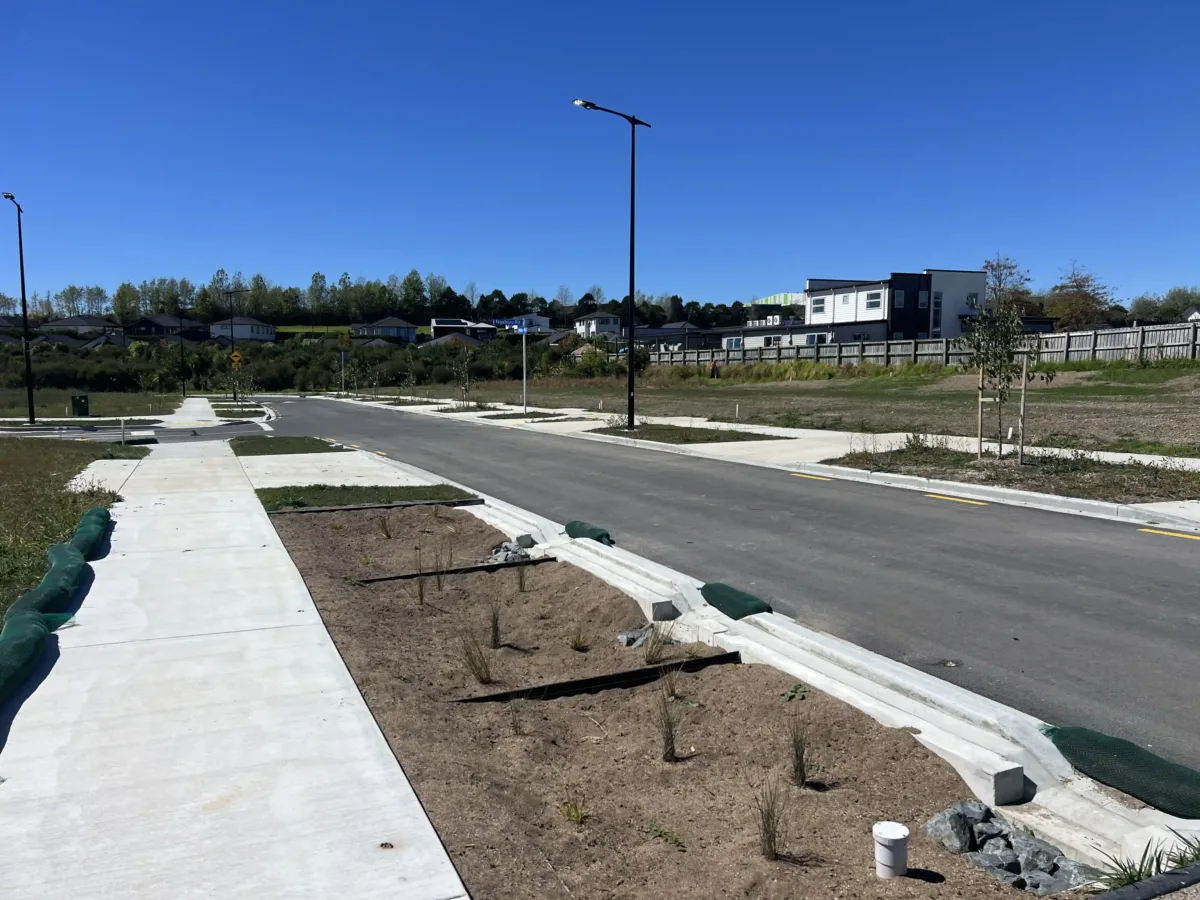Successful development begins well before earthworks start. From the first zoning check to final title certification, civil engineering led project management plays a pivotal role in shaping what’s possible. It brings together technical planning, civil engineering design, regulatory compliance, and site coordination into a structured process.
At Everest Consultants, every land project is supported through a connected delivery model. With civil engineers and surveyors working as one team, clients gain clearer timelines, stronger council engagement, and better design coordination.

What Civil Engineering Led Project Management Covers
Developers often approach civil engineers for help with subdivision or infrastructure planning, but the full picture involves a broader mix of responsibilities. At Everest Consultants, clients are supported across:
- Early site and zoning assessments
- Civil engineering design for roads, drainage, and utilities
- Local and national compliance requirements
- Council documentation and approvals
- Coordination with surveyors, planners, and legal teams
- Site monitoring and engineering certification
Because these services are delivered under one roof, clients benefit from consistent reporting and fewer disconnects between each stage.
Step-by-Step: How We Manage Civil Projects
Step 1: Early-Stage Feasibility
The team begins with a thorough review of the site, identifying key factors such as service access, zoning restrictions, and development limitations. This step helps shape a realistic and practical direction for the project.
Step 2: Engineering Design and Planning
Detailed infrastructure designs are produced based on project needs and council expectations. These are created to be both functional and compliant, avoiding the back-and-forth that can delay submissions and approvals. The design takes an integrated approach by considering District, Regional, and Unitary Plan requirements.
Step 3: Council Submissions and Documentation
We handle the preparation and lodgement of engineering plans, supporting resource consent, and compliance approvals. The team communicates directly with councils to ensure requirements are addressed efficiently.
Step 4: On-Site Supervision and Certification
During construction, our engineers provide site support to monitor work against approved plans. Once completed, they issue the certification required for title issuance and final documentation.
Why One Point of Contact Matters
Working with separate consultants can introduce gaps that affect timing, budget, and regulatory compliance. With Everest Consultants, civil design consultants and surveyors operate as one team, reducing the number of handovers and improving communication throughout.
This structure offers:
- Better clarity on project timelines and deliverables
- Faster alignment between design, consent, and construction
- Consistent updates without conflicting advice
- Stronger control over compliance risk
Clients are able to move forward with greater confidence, supported by professionals who remain across the full scope of subdivision planning and delivery.
Comparison: Integrated Support vs Multi-Vendor Setup
Everest Consultants’ model supports project flow by keeping technical and regulatory work aligned.

Who This Service Suits Best
Our civil engineering project management is for:
- Developers undertaking subdivisions or infrastructure-led projects
- Builders coordinating multi-title or multi-stage work
- Commercial teams requiring support across approvals, engineering, and surveying
- Planners seeking a single source of coordination and compliance
With experience across Auckland, Northland, Waikato, and Bay of Plenty, the team brings region-specific insight into what influences timelines and approvals. This includes an understanding of council processes and how site-specific issues can affect development strategies.
Carrying Project Knowledge into the Next Stage
Our clients often return for support on future projects. One reason is continuity. When a team already understands the site history, past approvals, and planning context, it takes less time to get the next phase moving. That familiarity can improve forecasting, reduce the need for rework, and help teams plan with more clarity from the outset.
This is particularly useful for developers managing multiple parcels or revisiting stages across a larger subdivision.
A Reliable Framework for Development Success
Civil engineering project management shapes the pace, structure, and outcome of every land development project. With Everest Consultants, clients gain coordinated support from a team of experienced civil design consultants who manage engineering, surveying, and compliance under one roof.
If you’re preparing for development and want clarity from the start, we offer practical guidance and consistent delivery. Speak with our team to get started.
